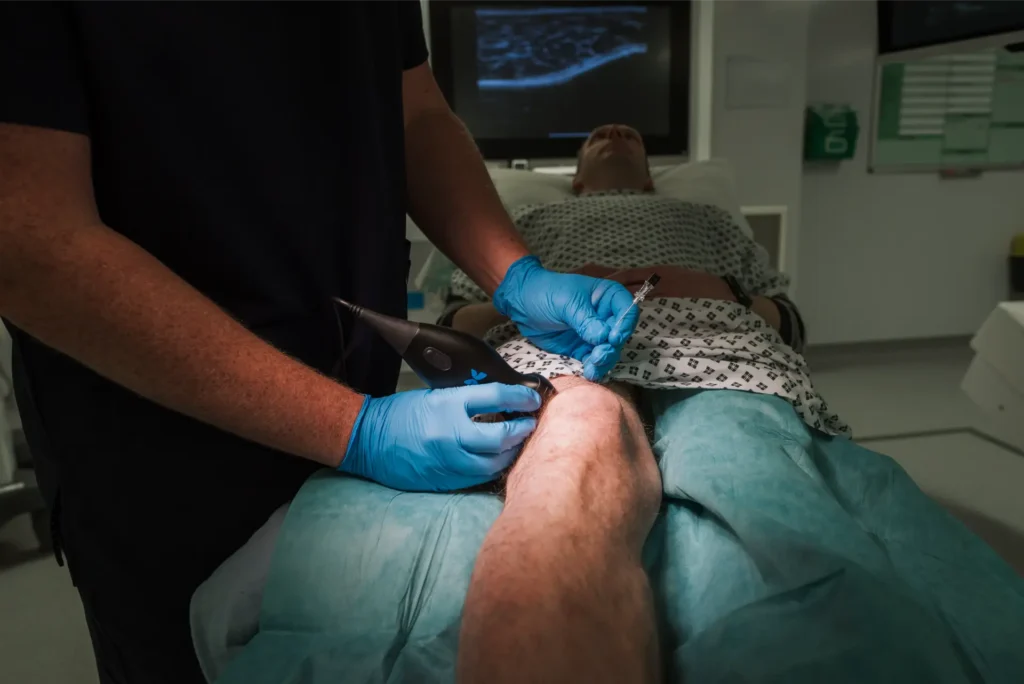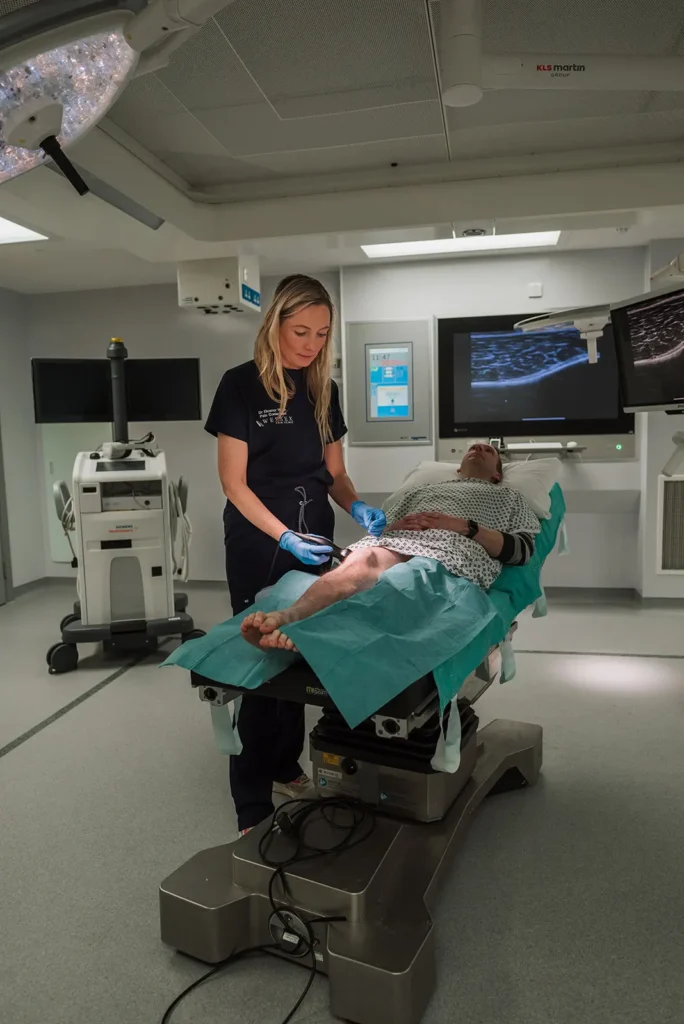
At Wessex Pain Clinic, our doctor-led team starts by examining your medical history, including how and when your knee pain began. A thorough physical assessment evaluates your knee’s range of motion, strength, and stability.
We also look for signs of swelling or tenderness. If more detail is needed, we may recommend imaging tests like X-rays, MRIs, or CT scans to detect ligament tears, cartilage damage, or arthritis-related changes. In certain instances, fluid analysis or blood tests help rule out infections or inflammatory conditions.

Weight management often plays a key role in easing pressure on the knee joint. Low-impact activities, such as swimming or cycling, help maintain fitness without aggravating the knee. Braces or orthotic inserts can provide stability and comfort, while acupuncture or other complementary methods may offer additional symptom relief.
Our friendly team is on hand to support you every step of the way. Please get in touch at any time.